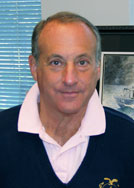
Writing for the Atlantic Council, a prominent think tank based in Washington DC, Harlan K. Ullman warns that an “extraordinary crisis” is needed to preserve the “new world order,” which is under threat of being derailed by non-state actors like Edward Snowden.
In an article entitled War on Terror Is not the Only Threat, Ullman asserts that, “tectonic changes are reshaping the international geostrategic system,” arguing that it’s not military superpowers like China but “non-state actors” like Edward Snowden, Bradley Manning and anonymous hackers who pose the biggest threat to the “365 year-old Westphalian system” because they are encouraging individuals to become self-empowered, eviscerating state control.
“Very few have taken note and fewer have acted on this realization,” notes Ullman, lamenting that “information revolution and instantaneous global communications” are thwarting the “new world order” announced by U.S. President George H.W. Bush more than two decades ago.
“Without an extraordinary crisis, little is likely to be done to reverse or limit the damage imposed by failed or failing governance,” writes Ullman, implying that only another 9/11-style cataclysm will enable the state to re-assert its dominance while “containing, reducing and eliminating the dangers posed by newly empowered non-state actors.”
Ullman concludes that the elimination of non-state actors and empowered individuals “must be done” in order to preserve the new world order. A summary of their material suggests that the Atlantic Council’s definition of a “new world order” is a global technocracy run by a fusion of big government and big business under which individuality is replaced by transhumanist singularity.
Ullman’s rhetoric sounds somewhat similar to that espoused by Trilateral Commission co-founder and regular Bilderberg attendee Zbigniew Brzezinski, who in 2010 told a Council on Foreign Relations meeting that a “global political awakening,” in combination with infighting amongst the elite, was threatening to derail the move towards a one world government.
Ullman’s implied call for an “extraordinary crisis” to reinvigorate support for state power and big government has eerie shades of the Project For a New American Century’s 1997 lament that “absent some catastrophic catalyzing event – like a new Pearl Harbor,” an expansion of U.S. militarism would have been impossible.
In 2012, Patrick Clawson, member of the influential pro-Israel Washington Institute for Near East Policy (WINEP) think tank, also suggested that the United States should launch a staged provocation to start a war with Iran.
Ullman’s concern over failing state institutions having their influence eroded by empowered individuals, primarily via the Internet, is yet another sign that the elite is panicking over the “global political awakening”
- See more at: News Watch
Who is Dr. Harlan K. Ullman?
 |
Mr. Shock & Awe
|
Ullman, Mr. “Shock and Awe” himself, is one of the Neoconservatives who planned the U.S. invasion of Iraq. He’s a retired U.S. Naval Commander who is known as the mastermind behind the U.S. “Rapid Dominance” strategy used in the bombing of Iraq in April, 2003. Indeed, he coined the phrase, “Shock and Awe”. He is a senior adviser at the Center for Strategic and International Studies (CSIS) and the Atlantic Council. One of his books, a product of the National Defense University, promotes the doctrine of shock and awe. It technically is known as “rapid dominance” and is a military doctrine based on the use of “overwhelming decisive force”, “dominant battlefield awareness”, “dominant maneuvers”, and “spectacular displays of power” to “paralyze an adversary’s preception of the battlefield and destroy its will to fight”.
All this reminds me of the Crisis Initiation speech from the Israeli lobbyist suggesting war with Iran.
Washington Institute for Near East policy forum luncheon Patrick Clawson, who heads the Washington Institute's Iran Security Initiative, went as far as to suggest the US may be best served by carrying out a false flag style attack so the President could take the US to war with Iran.
Clawson actually went as far as to suggest that false flag operations were "the traditional way America gets to war is what would be best for US interests"
He went on to give us a concise history of past "false flag operations" - the attack on Pearl Harbor, the sinking of the Lusitania, the Gulf of Tonkin incident, and ever the blowing up of the USS Maine - as giving past Presidents the excuse needed to go to war.
In the most chilling part of this speech he said, "So, if in fact the Iranians aren't going to compromise," the Israel lobbyist concluded with a smirk on his face, "it would be best if somebody else started the war."
Washington Institute for Near East Policy -http://en.wikipedia.org/wiki/Washingt...
ZOOM IN and use #NetworkLink Analysis to Compute the Crimes of the #Bilderberg http://t.co/8gaJDzWO10 pic.twitter.com/CNHDP2Nw64
— Flashback (@Flashback1984) June 1, 2014

